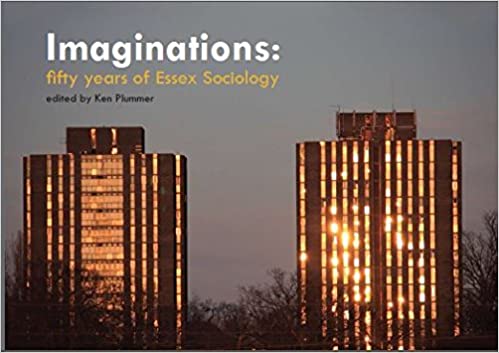The history of British sociology is an underdeveloped area of research, though recent work has begun the task of reconstructing this largely unknown history. Work underway aims to build a history of the numerous Departments of Sociology that have made, and continue to comprise a vibrant sociological community. To help build this history I need the help of the readers of this post.
The best-known account until recently was Halsey’s idiosyncratic and somewhat flawed account in his A History of Sociology in Britain (2004). This combined useful survey evidence on contemporary sociology with a partial account of some strands in early social thought. The view conveyed was that there was little before 1945 apart from the outmoded work of Herbert Spencer. In 2013, however, Ray Bromley and I published Envisioning Sociology, which looked at the work of Patrick Geddes and Victor Branford in the early Sociological Society. This followed hard on the heels of Chris Renwick’s British Sociology's Lost Biological Roots (2012), which looked at the related influence of biological and evolutionary approaches. In 2014, John Holmwood and I edited The Palgrave Handbook of Sociology in Britain, taking a broader view of earlier traditions and reviewing intellectual trends in contemporary sociological work. Then, in 2018, I published British Social Theory, which aimed to review theoretical approaches from the 17th century up to 1950.
These works filled a major gap in our understanding of British contributions to social theory. To provide some understanding of the institutional context of recent developments in sociology, I wrote British Sociology: A History (Palgrave, 2020). The book covered the organisational development of sociology over the last 100 years, tracing the founding departments in the subject that went under a variety of names such as Sociology, Social Studies, Social Science, and, of course, Social Administration. I look at the development of these departments through the 1920s and 1930s and then at the founding of new departments during the 1950s and 1960s. I tried to place these departments in the overall context of the slow growth in university funding, the financial cuts, the attacks on sociology, and the ongoing reorganisation of the Higher Education system through the introduction of research assessments, funding councils, and other regulatory agencies. These were seen as shaping the overall system of provision and constraining the development of newer departments since the 1970s.
Jennifer Platt’s The History of the British Sociological Association (2002) gave a detailed account of the Association and the people involved in it. My own book aimed to do something similar for the Departments of Sociology. Most of these departments lack their historians, the exceptions being the LSE, which is covered in Chris Husbands’s voluminous Sociology at the London School of Economics and Political Science, 1904–2015 (2019) and Ken Plummer's Imaginations: Fifty Years of Essex Sociology (2014)
Using such details as could be found on the internet, in footnotes, Prefaces, and Acknowledgements, in registers, and from personal information, I have attempted to produce accounts of the various departments and the people and work associated with them. I have set up a page on this website where I have brought together the various details from my book into an alphabetical listing of departments. I hope that this will become a permanent record of the changing fortunes of the various departments. My accounts, however, are still incomplete: some departments are not covered at all, and many are short on detail. I am endeavouring to add to these accounts as far as I can and I will be very happy to receive information through my contact page from anyone who can help to fill the various gaps about departments with which they are familiar.

